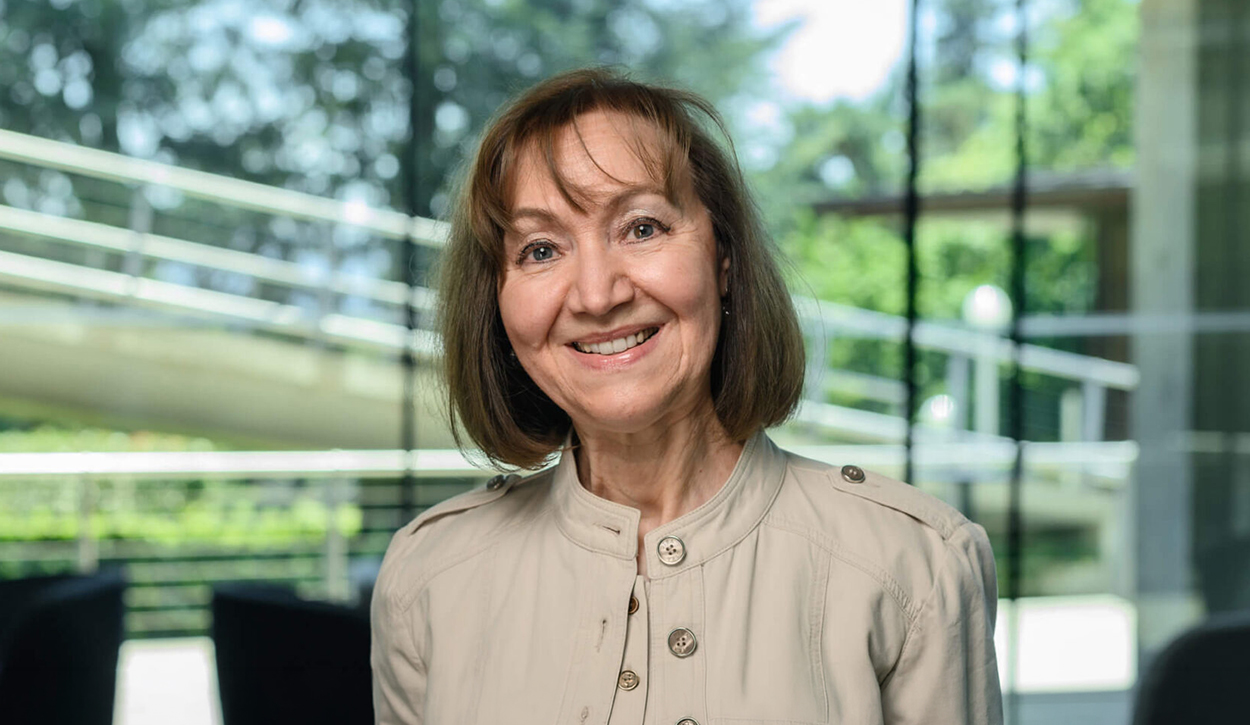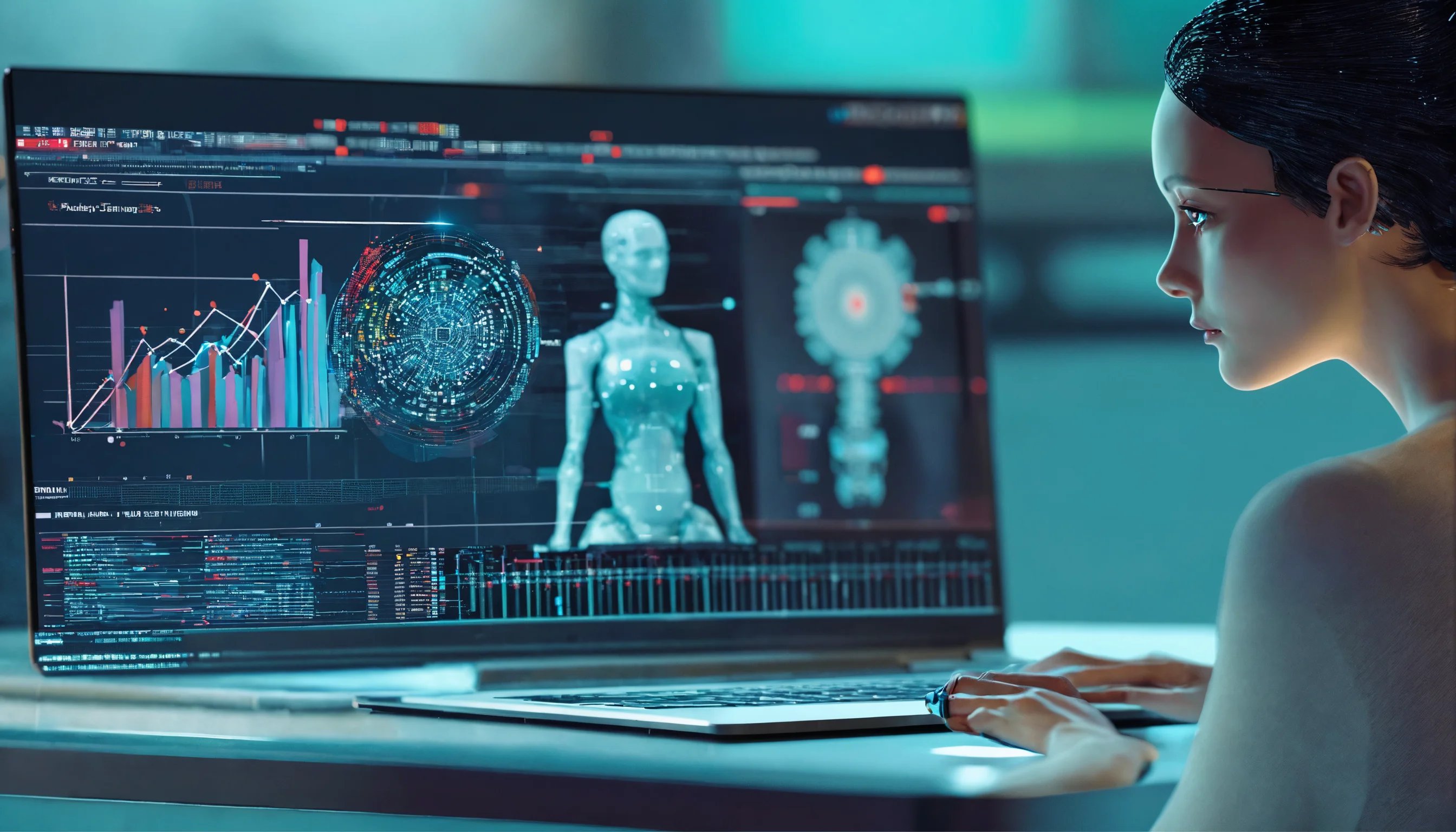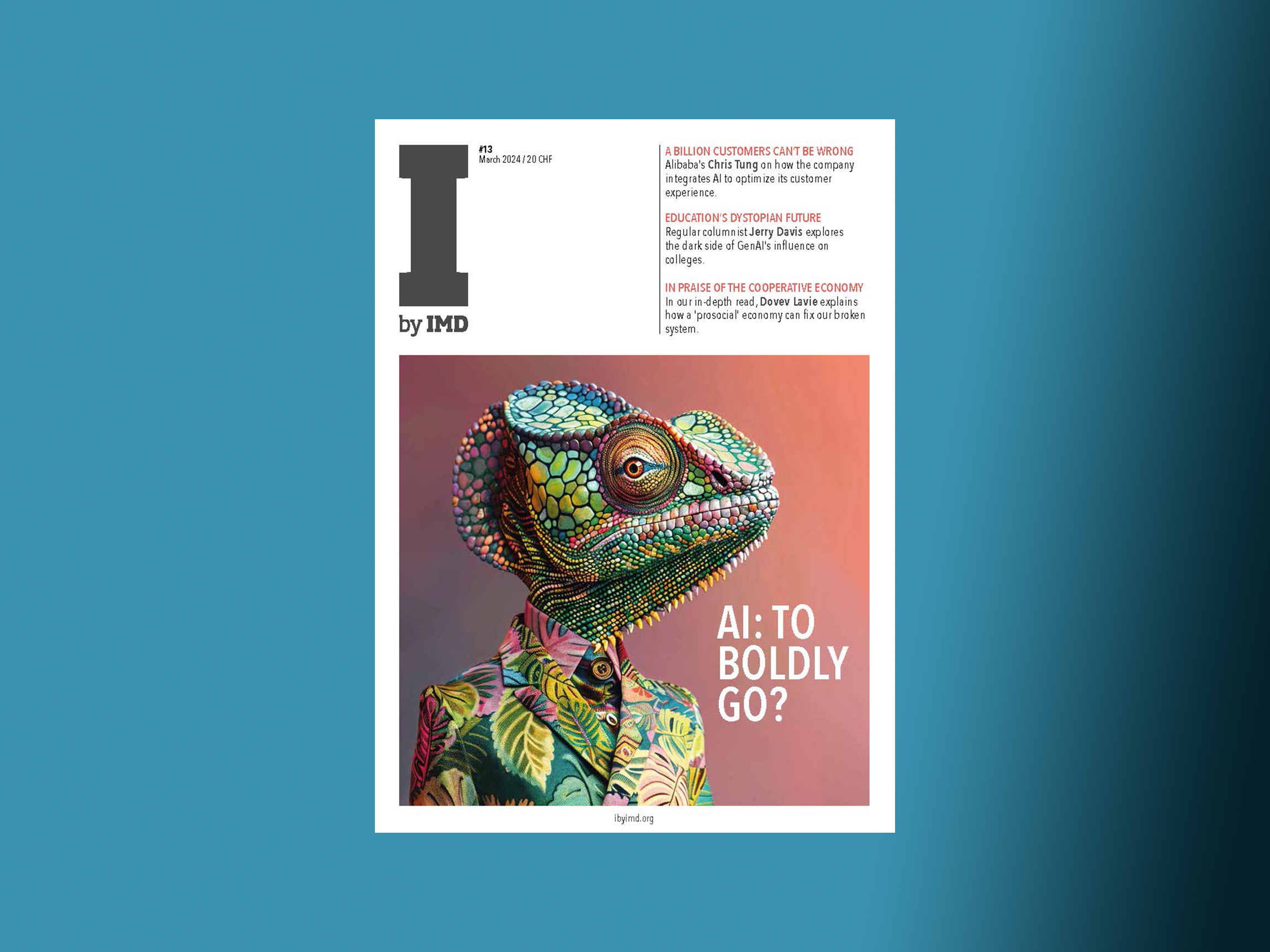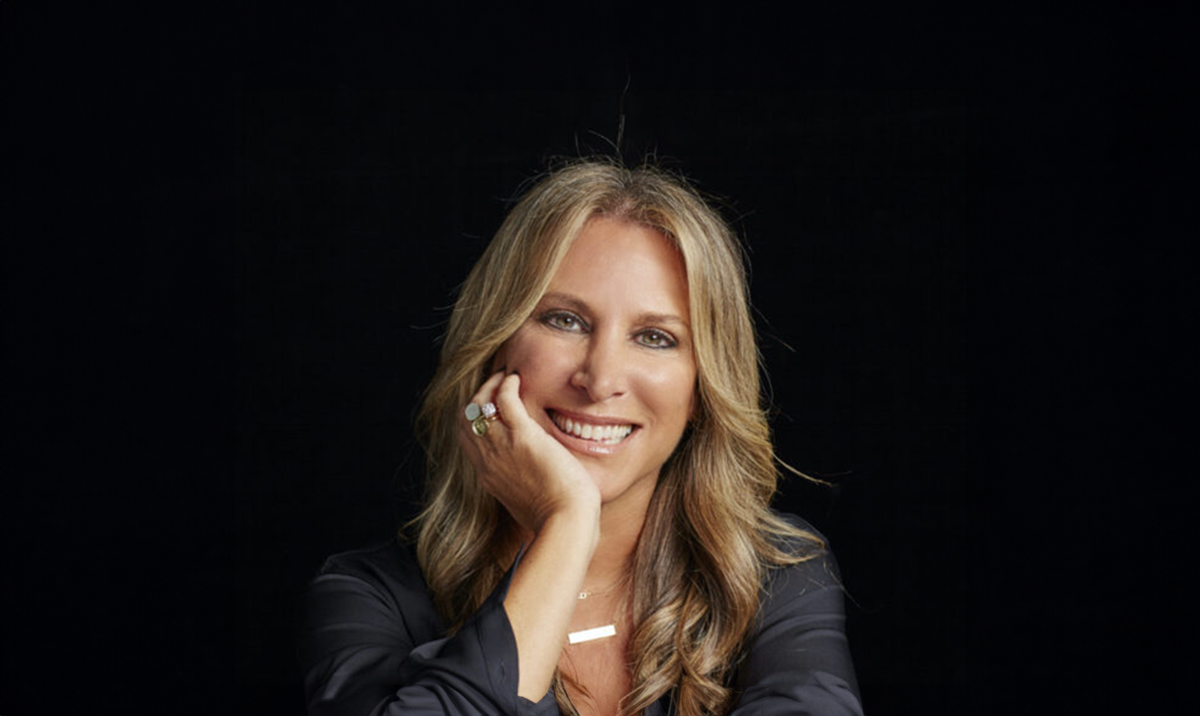
The confidence myth holding women back at work
In her latest book, The Confidence Myth, IMD Professor Ginka Toegel examines why confidence is so often misinterpreted at work – and how organizational systems shape who is seen as confident and...

by Shelley Zalis Published March 22, 2024 in Women's empowerment • 5 min read • 
There is a fear of the unknown, a fear of what is happening behind the scenes, of technology outpacing our thinking. Change always brings fear, and the high-speed evolution of AI has magnified that feeling.
The key to staying abreast and in tune with any technological change is being part of it and leading it. This includes following updates, educating ourselves, sharing with others, and contributing to its development. The most well-informed person in the room will also be the least afraid.
The most common concern I hear about AI is that it will take away jobs and reduce the need for human interaction. Is it true? Yes, every new technology reduces a certain number of jobs and seeks to be more efficient than the previous iteration. But it also provides new opportunities and jobs requiring specialized skills for those who master it. Someone who grasps this need and can provide that expertise will set themselves apart. They are in demand and have opened the door to new jobs because they are among the few who skated ahead to see where that technology was planting its flag.
As AI continues to transform industries across the globe, we must ask ourselves: “Are we doing enough to ensure women are readying themselves to be part of the AI revolution?”
The Female Quotient and The Harris Poll recently presented The State of AI + Women at the 2024 World Economic Forum in Davos. The data was promising but leaves room for improvement. Women are leveraging AI in their personal and professional lives, with 57% saying they use AI for personal use at least once a month, while mothers with children under 18 log in higher at 77%, along with working women (65%).
What platforms are they using? ChatGPT, Google’s Gemini (formerly Bard), GrammarlyGO, and more. How do they use it? I can speak from my own experience. I use ChatGPT to transcribe my thoughts as I riff or draft speeches or articles. I utilize these tools to streamline my “To Do” list. I have used Google Bard to uncover topics our FQ community is searching for and search for images to illustrate an idea quickly. I’ve learned how to tailor prompts and keep asking questions so that machine learning improves and familiarizes itself with the types of responses I seek. Was I intimidated when I first started? A little. But I knew I had to experiment and learn; otherwise, I’d be left behind. I also understood the importance of familiarizing myself with these platforms to identify existing biases. Biases will only continue if there is a narrow segment programming, using, and asking AI questions and contributing to the content AI produces. After all, who informs AI? We do.

AI is revolutionizing the world of business, at pace. How do executives guarantee this mass adoption benefits both their organizations and society? In Issue 13 of I by IMD, we explore how to lead effectively – and responsibly – in the age of AI.
More than a decade ago, we recognized the realities of AI’s prominence and its bias. That’s why The Female Quotient created The Algorithm for Equality®. We understood the imperative to embrace and champion the importance of unbiased, equitable, and ethical artificial intelligence.
Mastering AI and ensuring its impartiality doesn’t need to be complicated. As leaders, we must be part of the solution. We must ensure AI creates more equitable content because we are vested, learning, and contributing. We must lead the charge for an AI experience that truly reflects our world and brings others along with us.
Today, our Algorithm for Equality® Manifesto offers a blueprint for not only learning to use AI but also being part of the governing body that determines its transformation. We have provided a roadmap that provides actionable and intentional steps anyone, regardless of skill, can take to use AI in their everyday lives. It’s a collaborative manifesto that welcomes everyone to help train AI, helping to ensure that the algorithms of tomorrow enable an equitable digital future.
AI doesn’t have to take away opportunity – it can create it. It can create efficiencies at scale so women can streamline their work, widen education opportunities, and allow the necessary upskilling that results in a higher paycheck. But this won’t happen by itself. It is up to us to recognize and use our collective power to democratize AI and recognize it for the level setter that it is.
To ensure a democratized AI experience, we must:
Whether it’s tapping into AI-driven educational platforms and learning apps to upskill or seek continuous education or AI-based virtual assistants for everyday tasks, AI has the potential to streamline productivity and unlock new opportunities. Many women who have used AI have reported life-shifting benefits, such as getting back more time in their day, and for professional women and mothers, that is a tremendous gain. It’s time for all women to experience the positives AI can bring into the workplace and beyond.
By encouraging women to embrace AI, even at the most basic levels, and providing the necessary tools and skills to get started, we will ensure that they aren’t, once again, left behind. This is how we set the course for a more equitable future in the world of AI.
The main AI image was created with Lexica.

Founder and CEO of The Female Quotient
Shelley Zalis – CEO, Founder, and “Chief Troublemaker” of The Female Quotient – is an entrepreneur, three-time movement maker, and advocate for reshaping the workplace for the modern era. She is redefining leadership and challenging outdated systems.
At The FQ, Zalis built the largest global community of women in business across 30 industries in more than 100 countries. Previously, she transformed market research by founded OTX, later selling it to Ipsos. She co-created #SeeHer, championing accurate portrayals of women and girls in media.
A LinkedIn Top Voice and contributor to TIME and Forbes, Zalis’ accolades include the Global Leaders 50 List and Fast Company’s Brands That Matter.

February 23, 2026 • by Ginka Toegel in Women's empowerment
In her latest book, The Confidence Myth, IMD Professor Ginka Toegel examines why confidence is so often misinterpreted at work – and how organizational systems shape who is seen as confident and...

January 30, 2026 • by Qi Zhang in Women's empowerment
Striving to be a superhero has backfired professionally and personally for ambitious Frances. It’s time to ease her foot off the gas, says Qi Zhang...
 Audio available
Audio available
January 22, 2026 • by Shelley Zalis in Women's empowerment
Multigenerational teams bring competitive advantages. It’s vital to tap into the wisdom and experience of older workers, urges Shelley Zalis....
 Audio available
Audio available
January 21, 2026 • by Rupa Dash in Women's empowerment
As women live longer, society must rethink careers and leadership to unlock a longevity-equality dividend that enables women to contribute and lead at every life stage....
 Audio available
Audio availableExplore first person business intelligence from top minds curated for a global executive audience